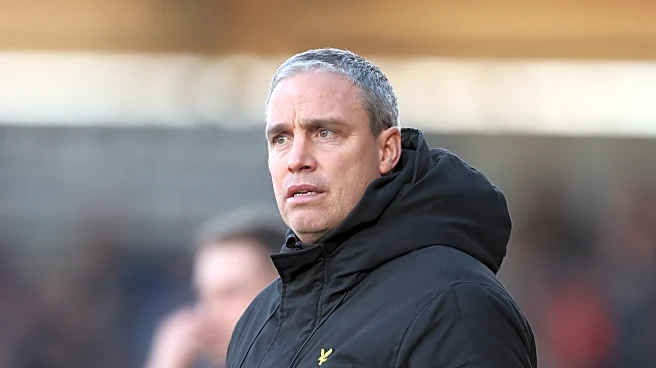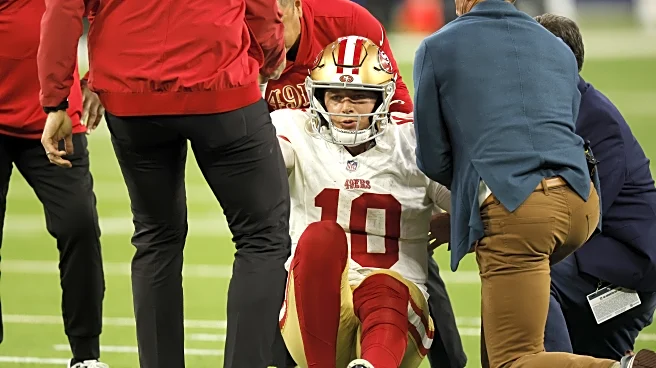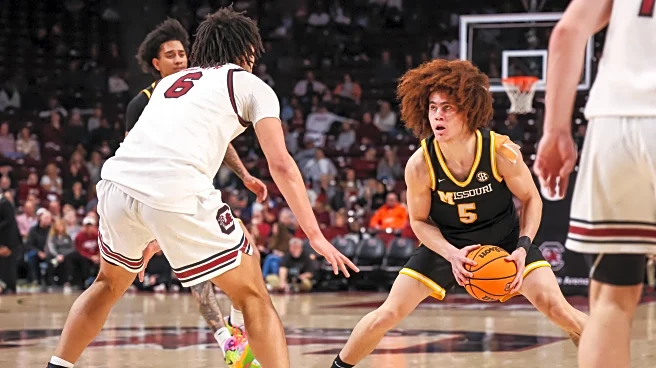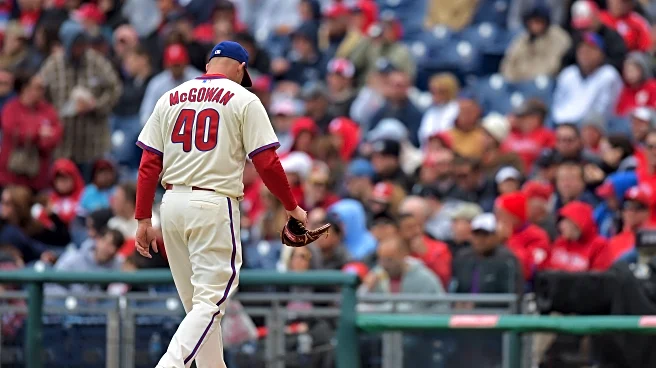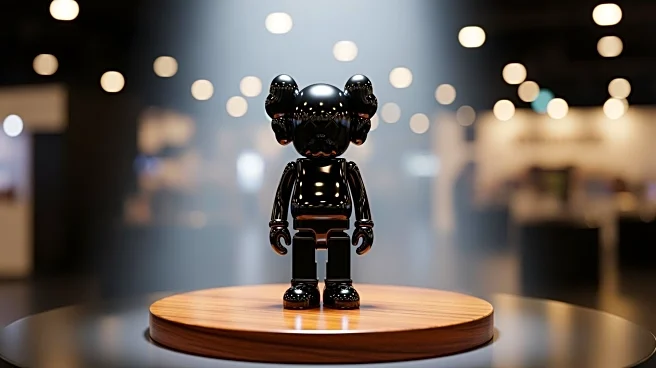What's Happening?
Paul 'Bonehead' Arthurs, the guitarist and co-founder of the iconic rock band Oasis, has announced his temporary departure from the band's current tour to undergo treatment for prostate cancer. Arthurs, who was diagnosed earlier this year, shared the news with fans via an Instagram post. He expressed optimism about his treatment progress, stating that he has been responding well, which allowed him to participate in the tour initially. However, he will now take a planned break to focus on the next phase of his care. This break will cause him to miss several upcoming shows in Seoul, Tokyo, Melbourne, and Sydney. Arthurs plans to rejoin the tour in November for performances in South America. Oasis, known for its significant impact on the music scene since its formation in 1991, recently resumed touring after a 15-year hiatus due to internal conflicts.
Why It's Important?
Arthurs' temporary departure from the tour highlights the ongoing challenges faced by individuals battling cancer, even those in high-profile positions. His decision to prioritize health over professional commitments underscores the importance of addressing personal well-being. For Oasis fans, this development may be disappointing, as it affects the band's lineup during the tour. However, Arthurs' positive outlook and plans to return in November provide hope and anticipation for his recovery and future performances. The situation also brings attention to prostate cancer, encouraging awareness and early detection efforts. The band's ability to continue the tour without Arthurs demonstrates resilience and adaptability, maintaining their connection with fans despite the setback.
What's Next?
Arthurs is expected to focus on his treatment and recovery during his break from the tour. Fans and the music community will likely follow his progress closely, offering support and encouragement. Oasis plans to continue their tour, with Arthurs aiming to rejoin in November for the South American leg. The band's management may need to make temporary adjustments to their performances to accommodate his absence. Arthurs' return will be highly anticipated, potentially drawing increased attention and attendance to the South American shows. The situation may also prompt discussions within the music industry about supporting artists facing health challenges.


